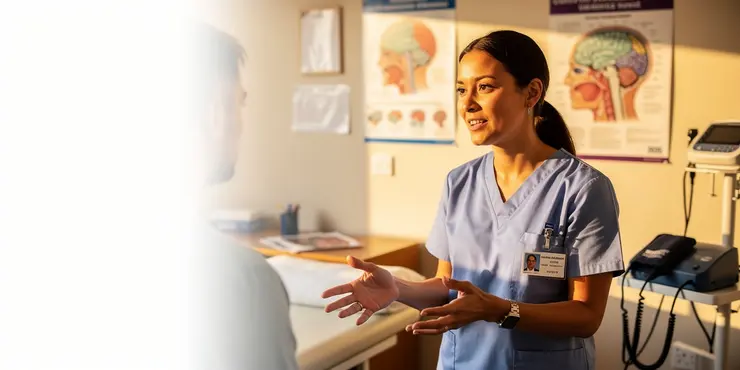
Find Help
More Items From Ergsy search
-
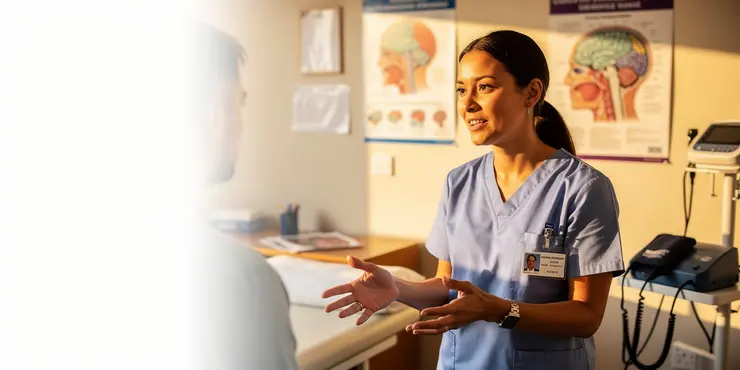
When is it safe to return to normal activities after a concussion?
Relevance: 100%
-

When is it safe to return to normal activities after a concussion?
Relevance: 100%
-

Is it safe to sleep after a concussion?
Relevance: 61%
-
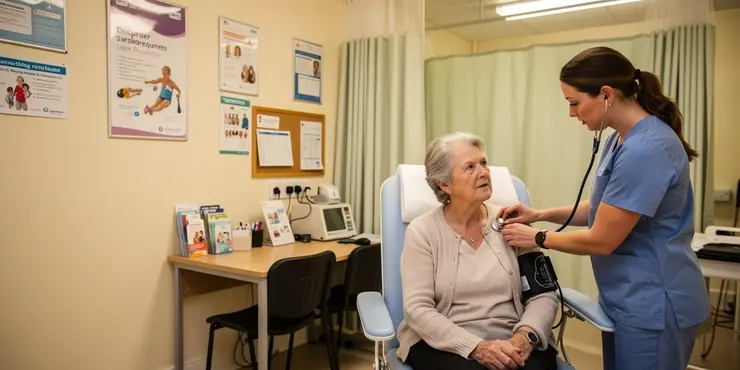
Is it safe to sleep after a concussion?
Relevance: 58%
-
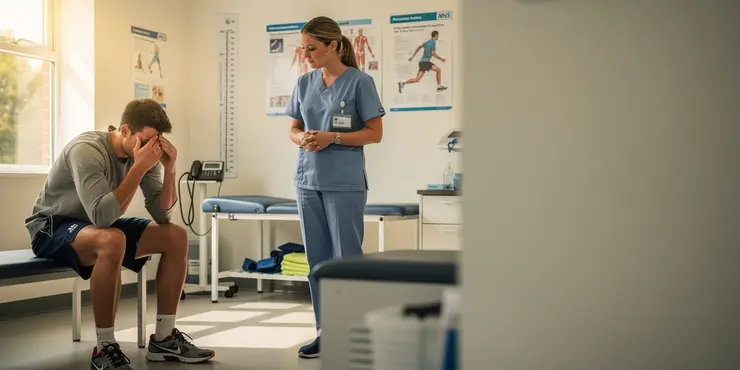
What is Concussion?
Relevance: 55%
-
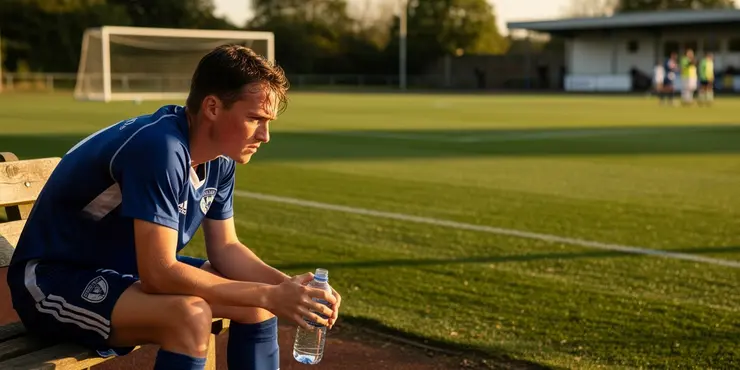
Can players return to play on the same day after a suspected concussion?
Relevance: 52%
-
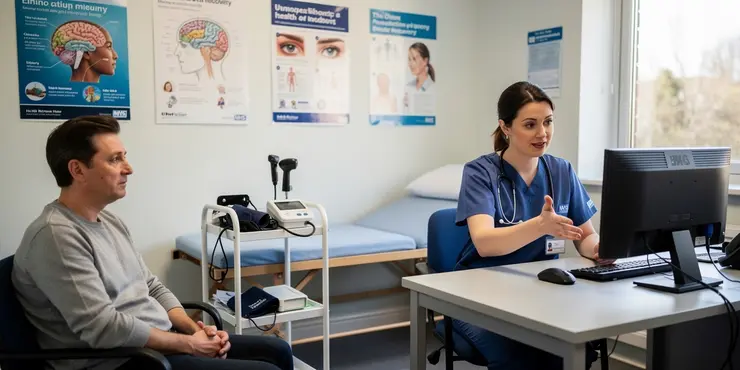
Should people with a concussion avoid screens and technology?
Relevance: 48%
-
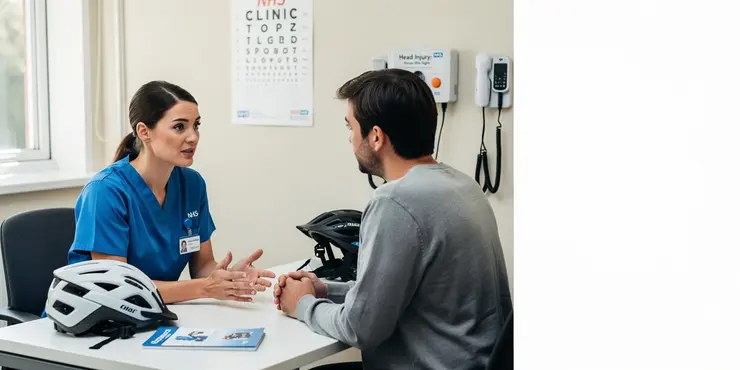
Is there any way to prevent concussions?
Relevance: 48%
-
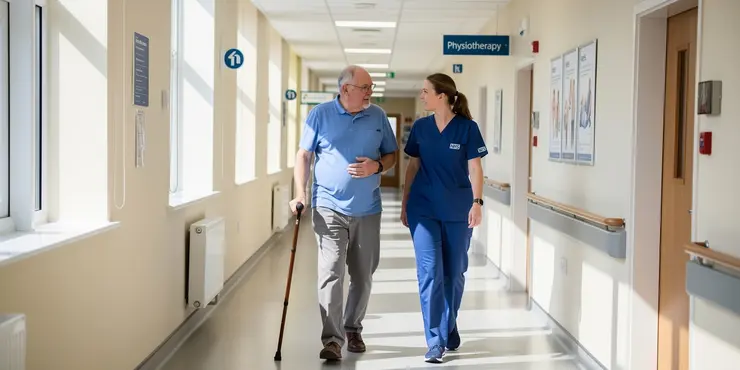
Will I be able to return to normal activities after hip replacement?
Relevance: 46%
-
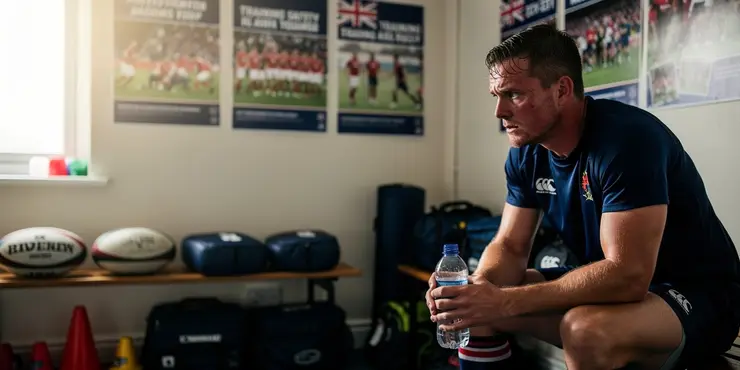
Is there a protocol for managing concussions in rugby?
Relevance: 46%
-
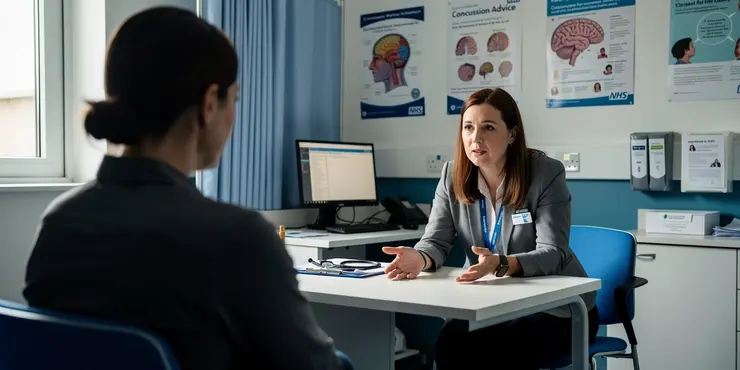
How is a concussion diagnosed?
Relevance: 44%
-
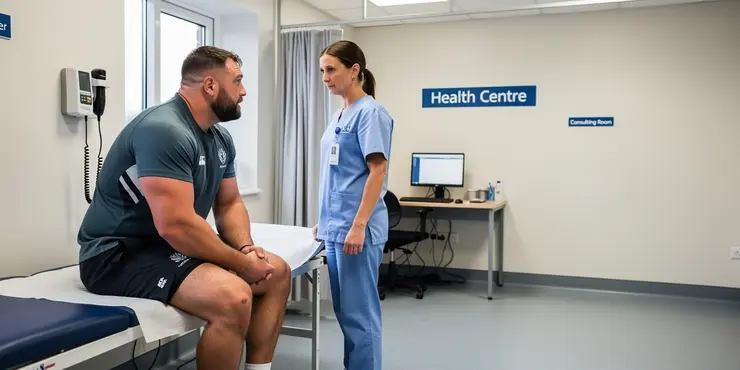
Are Concussions common in Rugby?
Relevance: 44%
-
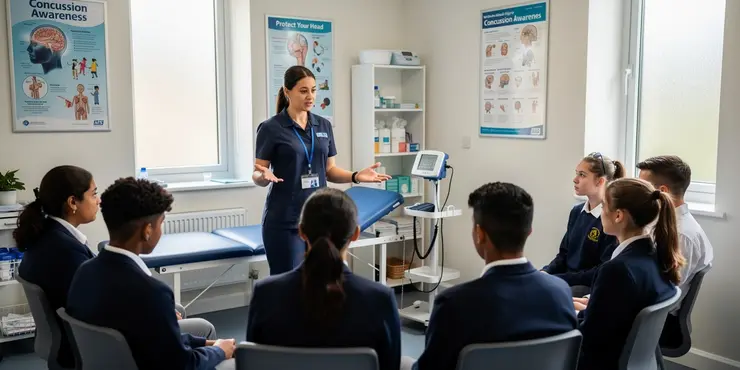
What role do schools play in managing concussions?
Relevance: 43%
-
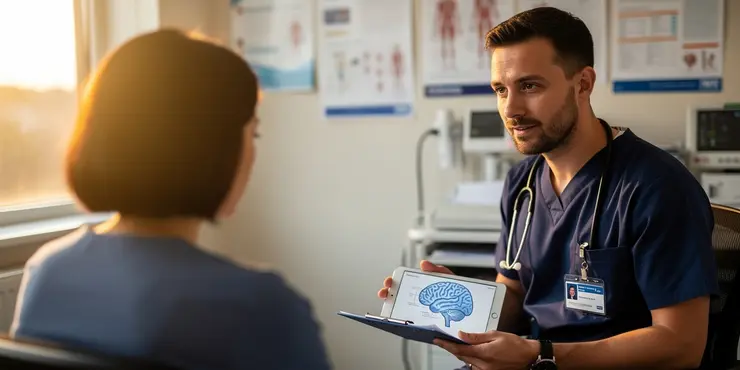
Is headache a symptom of a concussion?
Relevance: 43%
-
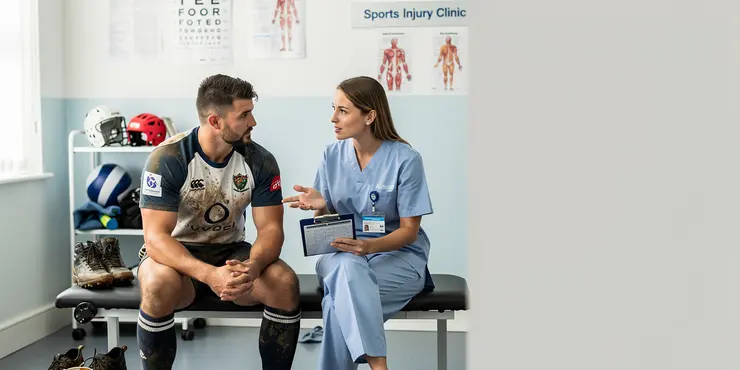
What support is available for rugby players who suffer concussions?
Relevance: 42%
-
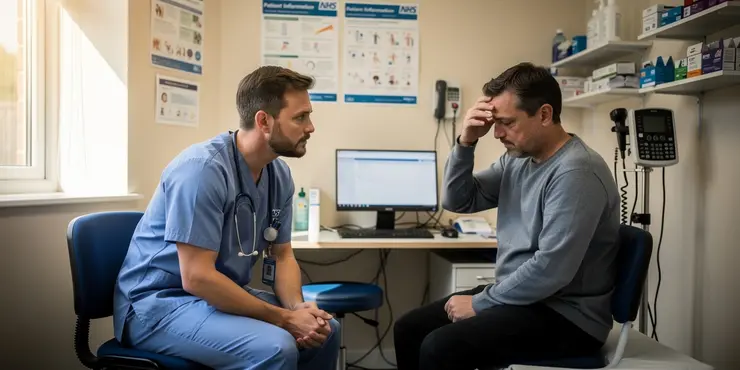
How is a concussion diagnosed?
Relevance: 41%
-
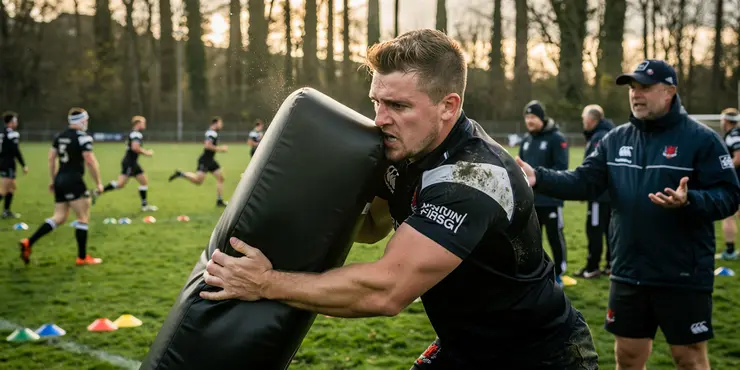
What causes concussions in rugby?
Relevance: 41%
-
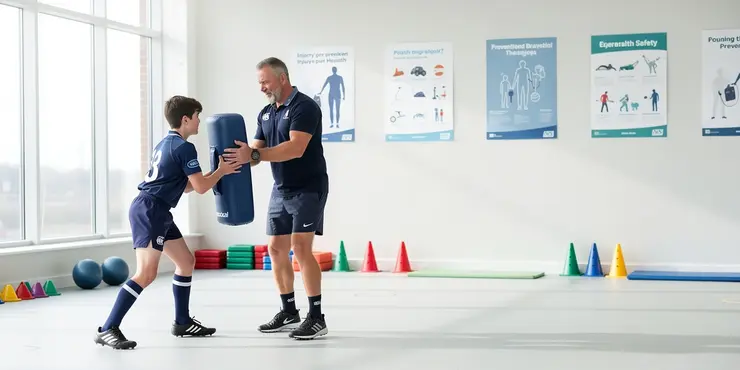
How can concussions be prevented?
Relevance: 41%
-
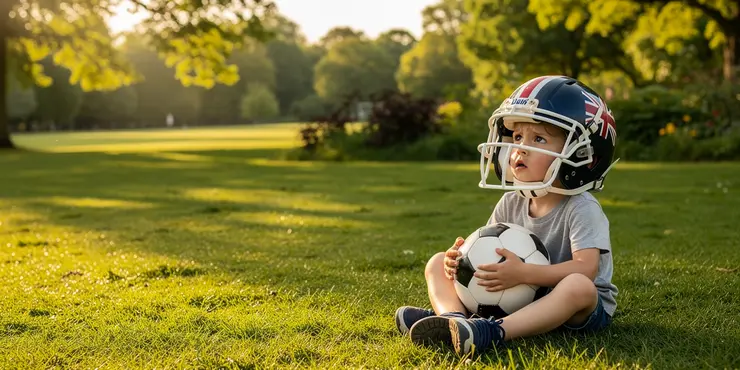
Are children more susceptible to concussions than adults?
Relevance: 41%
-
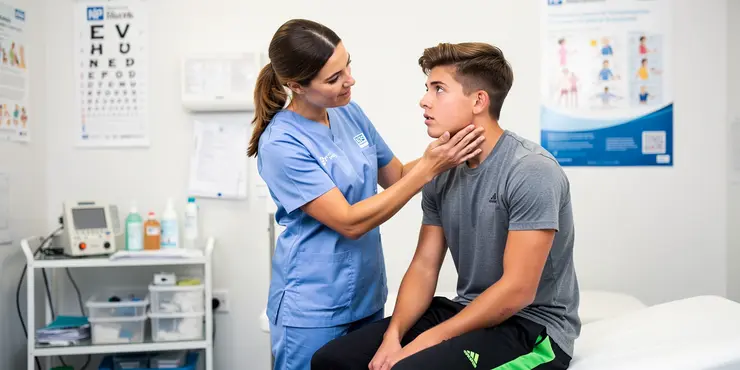
Can concussions occur without a direct blow to the head?
Relevance: 40%
-
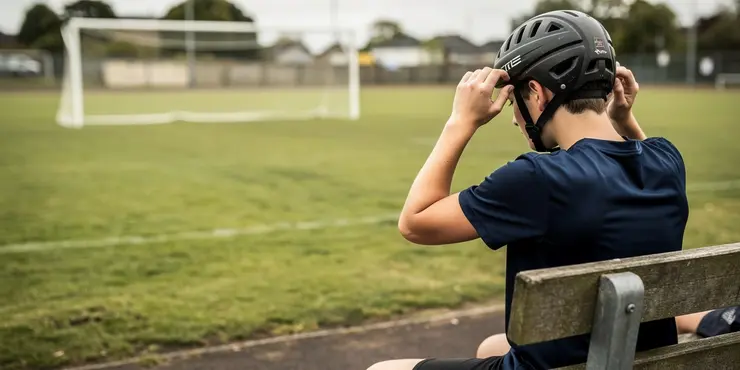
How can concussions be prevented?
Relevance: 39%
-
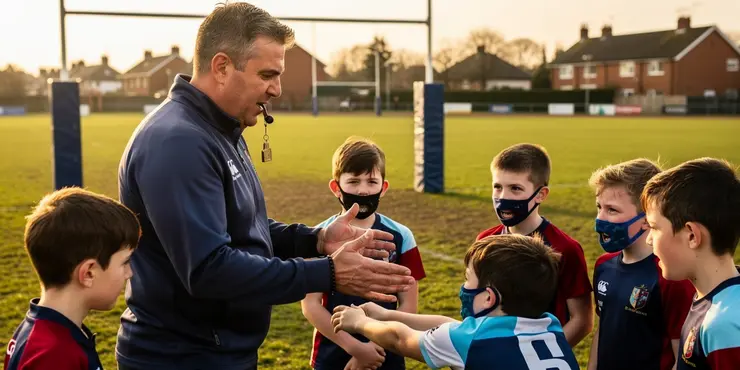
How can concussions be prevented in rugby?
Relevance: 38%
-
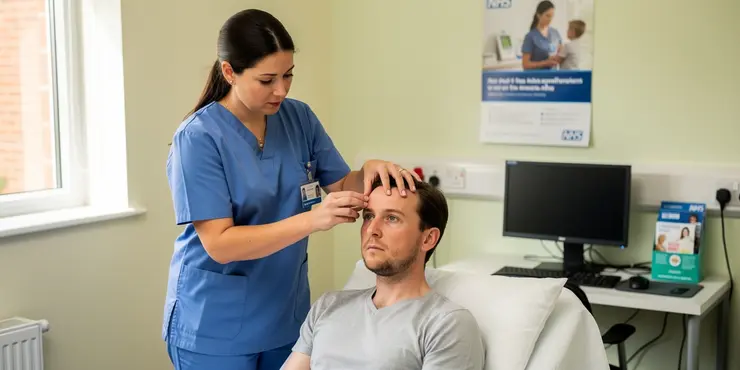
What immediate steps should be taken if someone has a concussion?
Relevance: 38%
-

Can a concussion cause memory problems?
Relevance: 37%
-
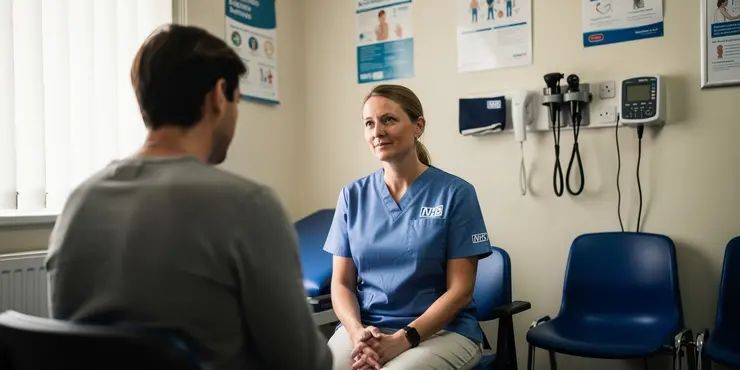
What are common symptoms of a concussion?
Relevance: 37%
-
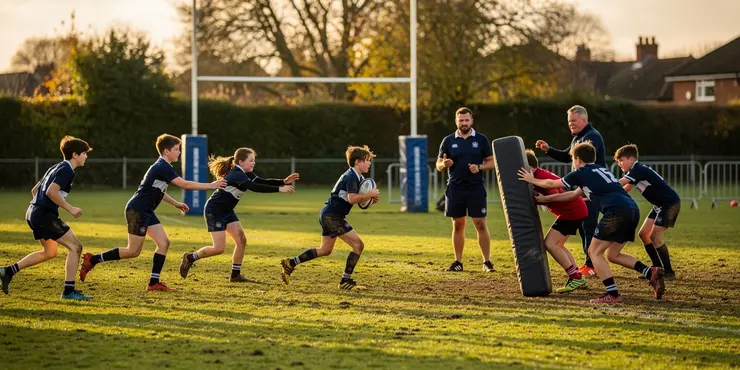
What age groups are most at risk for concussions in rugby?
Relevance: 36%
-
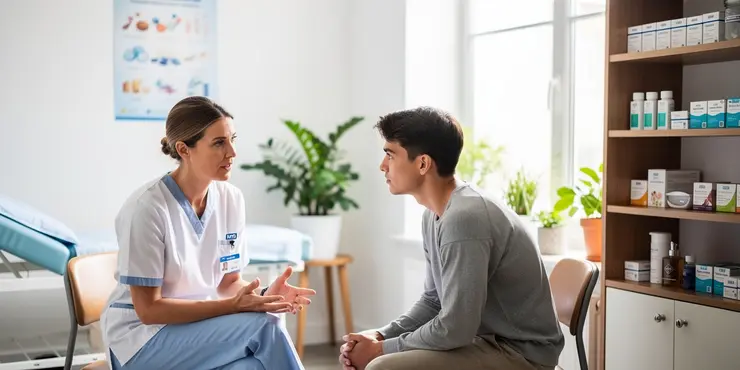
Can concussions lead to mental health issues?
Relevance: 36%
-
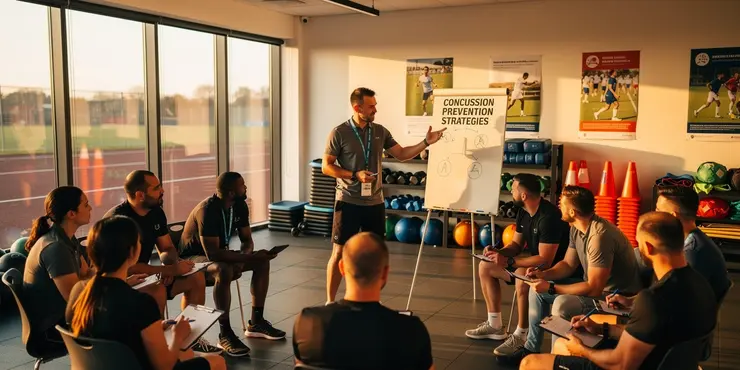
Is training available for coaches to help prevent concussions?
Relevance: 36%
-
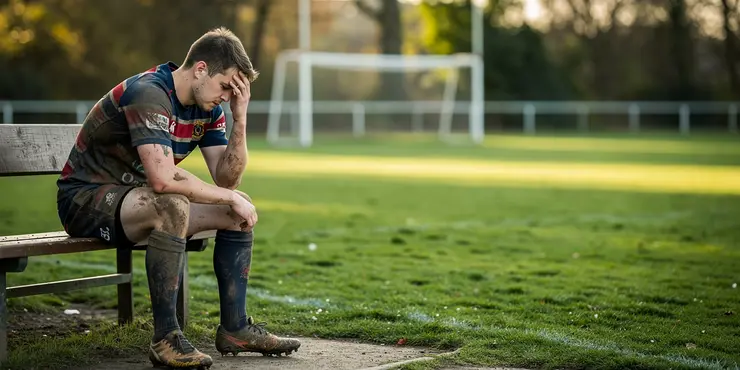
Can playing sports increase the risk of a concussion?
Relevance: 34%
-
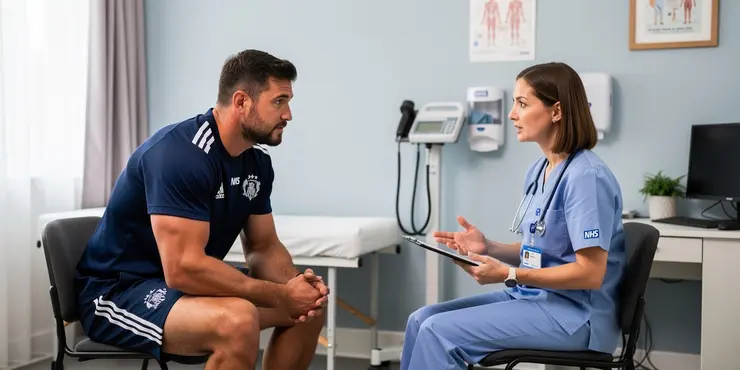
How do concussions impact long-term health in rugby players?
Relevance: 34%
-
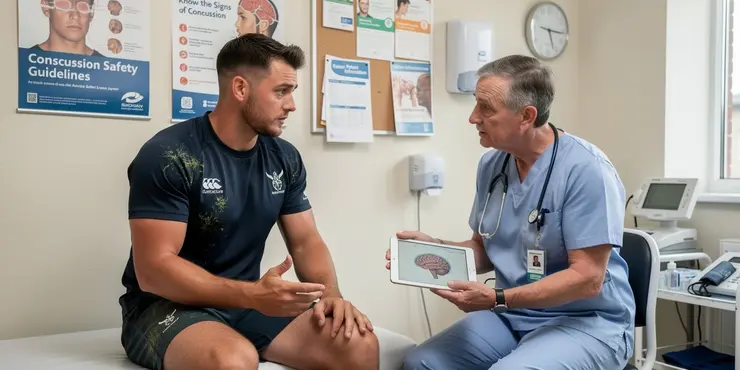
Are helmets required in rugby to prevent concussions?
Relevance: 33%
-
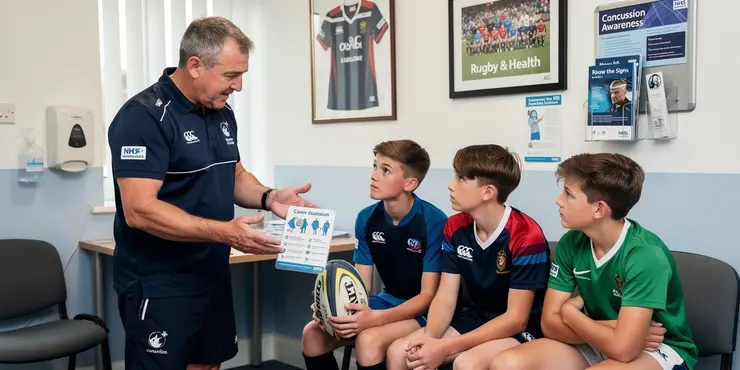
Is there a difference in concussion rates between amateur and professional rugby?
Relevance: 33%
-
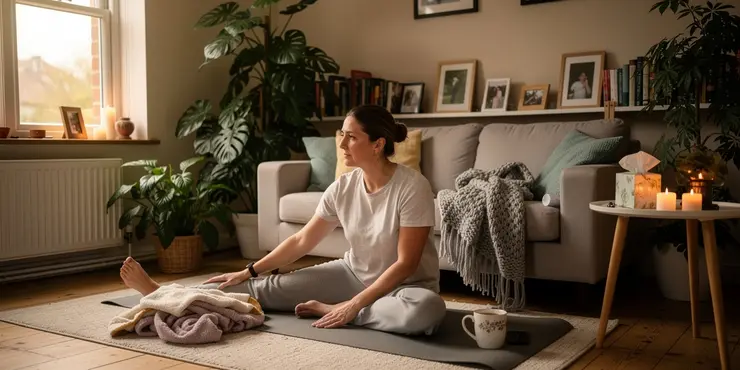
Is it safe to exercise with a cold?
Relevance: 27%
-
How can I tell the difference between normal teenage secrecy and potential grooming?
Relevance: 26%
-
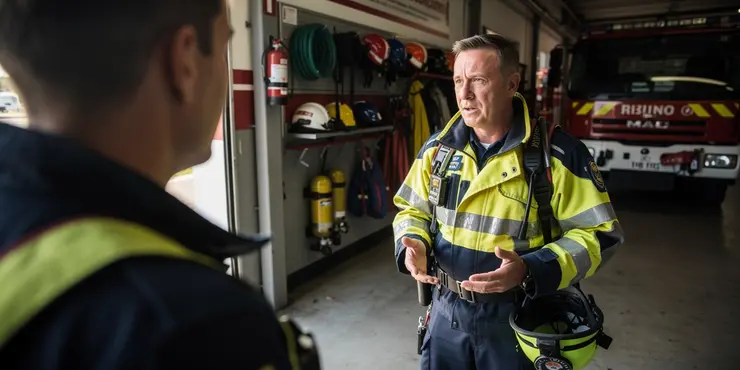
What is the normal pension age for firefighters in the UK?
Relevance: 25%
-
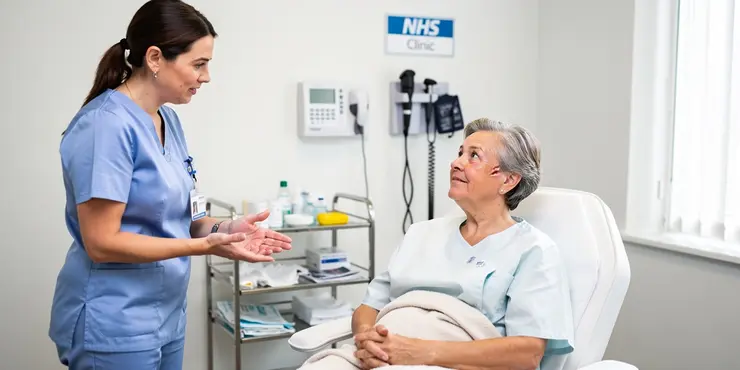
How soon can I return to work after a facelift?
Relevance: 25%
-
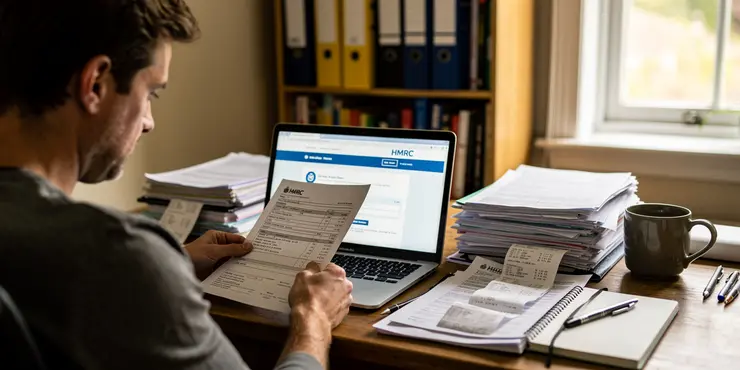
What is an online tax return?
Relevance: 25%
-
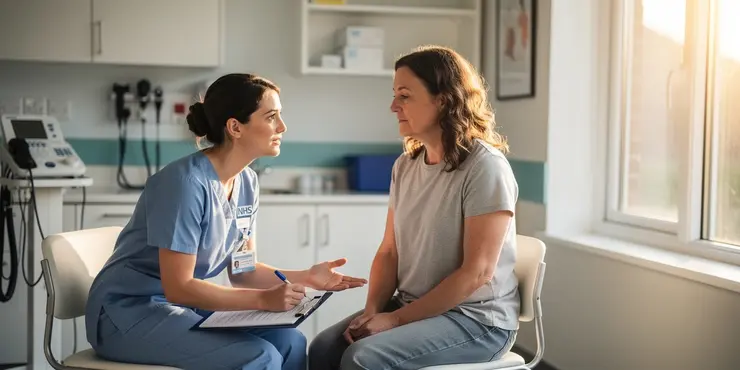
How soon can I return to work after a facelift?
Relevance: 25%
-

Starting your online tax return
Relevance: 24%
-
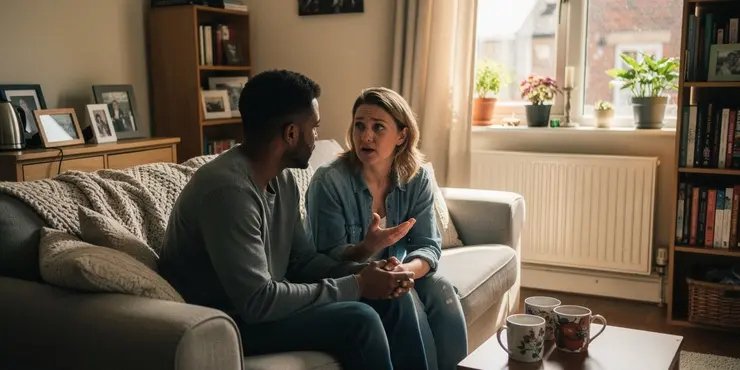
Is it normal to feel sad in a relationship sometimes?
Relevance: 24%
When is it Safe to Return to Normal Activities After a Concussion?
Understanding Concussion
A concussion is a type of traumatic brain injury caused by a bump or blow to the head. It can affect brain function, leading to symptoms like headaches, dizziness, and difficulties with concentration. Understanding the recovery process is essential for deciding when it is safe to return to normal activities.Initial Rest and Monitoring
After a concussion, it’s crucial to have a period of rest, ideally for the first 24-48 hours, to allow the brain to start the healing process. During this time, symptoms such as confusion, memory issues, or nausea should be monitored closely. Seek medical attention if symptoms worsen.Gradual Return to Cognitive Activities
Once symptoms improve, a gradual return to cognitive activities is recommended. This involves slowly reintroducing tasks like reading or screen time in short bursts, ensuring they do not exacerbate symptoms. Regular check-ins with a healthcare provider can help guide this process.Return to Physical Activity
Resuming physical activities should also be a gradual process, often guided by the 6-stage return-to-play protocol recommended by sports medicine professionals. This includes starting with light aerobic exercises before progressing to more challenging physical activities. It is important to ensure there is no return of symptoms at each stage.Consulting Healthcare Professionals
Consultation with healthcare professionals, such as GPs or specialists with experience in head injuries, is vital in making an informed decision about returning to normal activities. They can provide customized advice based on the severity of the concussion and the individual’s recovery journey.Individualized Recovery Plans
Each person’s recovery from a concussion can vary significantly. Factors such as age, health status, and history of concussions can all influence the recovery timeline. Therefore, personalized recovery plans are essential, and adjustments should be made based on how the person responds to increased activity levels.Conclusion
Returning to normal activities after a concussion should be approached with caution, ensuring both cognitive and physical activities are resumed gradually. In the UK, following medical advice and adhering to established guidelines will help ensure a safe return to everyday life while minimizing the risk of prolonged symptoms or further injury.When is it Safe to Go Back to Normal Activities After a Concussion?
What is a Concussion?
A concussion is when you hurt your brain after hitting your head. It can make you feel dizzy, give you headaches, and make it hard to concentrate. Knowing how to get better is important for knowing when you can go back to your normal activities.Rest and Watch for Changes
After a concussion, it's important to rest for 1 to 2 days. This helps your brain start to heal. During this time, watch for problems like confusion, trouble remembering things, or feeling sick. If you feel worse, see a doctor.Slowly Start Thinking Activities Again
When you start to feel better, slowly do activities like reading or using a computer for a short time. Make sure these activities don’t make you feel worse. Check with your doctor to help you know what you can do.Getting Back to Exercise
Start exercising slowly after a concussion. Begin with easy exercises and slowly do more as you feel better. Check if your symptoms return and stop if they do.Talk to Doctors
Talk to doctors who know about head injuries. They can help you decide when it's safe to return to your normal activities. They can give you advice based on how bad the concussion is and how you are feeling.Personal Recovery Plans
Everyone heals differently from a concussion. Your age, health, and past head injuries can all affect how fast you get better. This is why having a plan just for you is important.Final Thoughts
Be careful when going back to normal activities after a concussion. Start slowly with both thinking and physical activities. In the UK, listening to doctors and following rules will help you return safely to daily life and avoid getting hurt again.Frequently Asked Questions
What is a concussion?
A concussion is a type of brain injury caused by a bump, blow, or jolt to the head or body that causes the brain to move rapidly back and forth.
How soon can I return to normal activities after a concussion?
It varies for each individual, but it is important to rest until all symptoms have resolved. Typically, a gradual return to activities may begin after a few days, under medical guidance.
What are signs that I might have a concussion?
Signs of a concussion include headache, confusion, dizziness, nausea, balance problems, blurred vision, sensitivity to light or noise, and difficulty concentrating.
How important is rest after a concussion?
Rest is critical in the initial days following a concussion as it allows the brain to heal. Both physical rest and cognitive rest are advised.
Can I use screens or watch TV after a concussion?
Screen time should be limited immediately after a concussion, as it can aggravate symptoms. Gradual reintroduction is advised based on symptom tolerance.
When should I seek medical attention after a concussion?
Seek medical attention if symptoms worsen, you have repeated vomiting, seizures, or if you exhibit unusual behaviour.
Can I return to sport immediately after a concussion?
No, returning to sport should only occur after a symptom-free period and a gradual increase in activity, under medical supervision.
What does a gradual return to activity look like?
It usually involves starting with light activities that do not exacerbate symptoms, followed by moderate activities, then sport-specific exercises, and eventually full participation.
Is it safe to drive after a concussion?
Driving should be avoided until cleared by a healthcare professional, as reaction times and concentration may be impaired.
How long do concussion symptoms usually last?
Symptoms typically improve within a few weeks, but some people may experience symptoms for longer. Any prolonged symptoms should be evaluated by a healthcare provider.
What should I do if I feel fine but still have a concussion diagnosis?
Even if you feel fine, follow medical advice to ensure proper recovery and avoid premature return to activities that could worsen your condition.
Can children and adults follow the same return-to-activity guidelines?
Children often need a longer recovery period and may require a more conservative approach compared to adults. Always follow medical advice tailored to the individual.
Are there any long-term effects of a concussion?
While most people fully recover, repeated concussions may lead to long-term issues. Monitoring and medically managing symptoms are crucial to reduce risks.
What is post-concussion syndrome?
Post-concussion syndrome is a condition where concussion symptoms persist for weeks or months after the initial injury.
How can I prevent concussions?
Preventative measures include wearing appropriate protective gear during sports, ensuring a safe environment, and following road safety rules.
What is a concussion?
A concussion is a small injury to the brain. It can happen if you get a bump or hit on the head.
If you have a concussion, you might feel dizzy, see stars, or have a headache. Sometimes you can feel confused or have trouble remembering things.
If you think you have a concussion, tell a grown-up or see a doctor. Rest is very important to help you get better.
You can use pictures, videos, or talking to someone to understand better.
A concussion is when your brain gets hurt. This can happen if you hit your head or body really hard, and it makes your brain move quickly inside your head.
When can I go back to my usual activities after a bump to the head?
Everyone is different, but it is important to rest until you feel better. Usually, you can slowly start doing things again after a few days. Make sure to follow your doctor's advice.
How can I tell if I have a concussion?
Here are some signs you might have a concussion:
- You have a headache.
- You feel dizzy or lightheaded.
- You feel sick or throw up.
- You have trouble remembering things.
- You feel very tired or sleepy.
- You are confused and don't know where you are.
If you think you have a concussion, talk to a grown-up you trust. They can help you see a doctor. Getting help is important.
Using pictures or videos can help you understand more about concussions. Ask someone to explain things to you if you need help.
If you hit your head, you might have a concussion. You might feel a headache or feel confused. You could feel dizzy or feel like you want to throw up. It might be hard to stand up straight or see clearly.
Bright lights or loud sounds might bother you. It can also be hard to pay attention or think carefully.
If you feel these things, tell a grown-up. Ask them for help. They can talk to a doctor.
Why is rest important after a bump to the head?
Rest is very important after you bump your head.
When your head gets a strong hit, it needs time to get better.
Getting rest helps your brain heal.
Here are some ways to rest:
- Sleep a lot.
- Stay in a quiet place.
- Do gentle activities.
If you need help, ask an adult or use a timer to remind you to rest.
After you hurt your head, it is very important to rest. Rest helps your brain get better. You should rest your body and your mind.
Is it okay to look at screens or watch TV after a concussion?
If you hurt your head (a concussion), you might wonder if it's safe to look at screens like a TV, computer, or phone. Here is what you should know:
- Rest your eyes. It is good to take breaks from screens. Try to rest your mind and body.
- Ask a doctor. They can tell you when it is safe to watch TV again.
These tips can help:
- Use dim lights. Bright screens can make your head hurt more.
- Listen to calm music or books. This can be easier than watching screens.
After a bump on the head, it's important to have less screen time. Looking at screens can make you feel worse. Slowly start looking at screens again when you feel better.
When should I see a doctor after hitting my head?
If you hit your head, sometimes you might get a concussion. This is when your brain gets a little hurt. It is important to know when to see a doctor.
You should see a doctor if you:
- Feel dizzy or confused
- Keep throwing up or feel sick
- Have a really bad headache
- Have trouble walking or talking
- Feel very sleepy or cannot wake up
- Notice any changes in your eyes or vision
If you are not sure what to do, you can always ask an adult or call a doctor. They can help you decide what to do next.
Go to the doctor if you feel worse, keep throwing up, have fits, or start acting strangely.
Can I play sports right after a concussion?
If you hurt your head, wait before playing sports again.
Your brain needs time to heal. Rest is important.
Ask a doctor when it is safe to start playing sports.
Use pictures or videos to help remember what to do.
No, you should only go back to playing sports when you feel completely better. You need to start with easy activities and slowly do more. A doctor should help you to stay safe.
What does slowly getting back to activities look like?
When you are starting to do things again after resting, go slow. Start with easy things first.
You can use a planner or calendar to help you remember what to do each day.
Ask someone to help you if you find it difficult. Try to take breaks and rest when you need to.
Think about the things you enjoy and start with those. Make sure to listen to your body and don’t rush.
Start with light activities that are easy and do not make you feel worse. Then, try activities that are a little harder. Next, do exercises that are just for your sport. Finally, you can take part fully in the sport again.
Is it safe to drive after a head bump?
If you hit your head, it might not be safe to drive right away. Here’s why:
- You might feel dizzy or sleepy.
- Your head might hurt or feel strange.
- You might have trouble seeing or thinking clearly.
Here’s what you can do:
- Ask a doctor if it's okay to drive.
- Let someone else drive you if you don’t feel good.
- Rest until you feel better.
Don't drive a car until a doctor says it's okay. You might not be able to focus or react quickly.
How long do concussion symptoms usually last?
When you hurt your head, it is called a concussion. You may feel dizzy, sick, or have a headache.
These feelings are called symptoms. They can last for a few days or up to a few weeks.
If you still feel unwell after a couple of weeks, tell an adult or see a doctor.
You can use picture cards or ask someone to explain words you do not understand. They can help make things clearer.
People usually start to feel better in a few weeks. But, some people might feel unwell for a longer time. If this happens, it's important to see a doctor or nurse.
What to Do if I Have a Concussion but Feel Okay?
If a doctor says you have a concussion, but you feel okay, here’s what you can do:
- Rest: Take lots of breaks and don’t do too much.
- Listen to the doctor: Follow their advice exactly.
- Tell someone: Like a parent or teacher, if you feel different.
- Use a calendar: Keep track of when you take medicine or need rest.
- Relax: Listen to calming music or read a simple book.
Ask an adult if you have questions. Stay safe and take care!
Even if you feel okay, listen to your doctor. This helps you get better and stops you from getting worse.
Can kids and grown-ups use the same steps to get back to doing things?
Sometimes kids and grown-ups use different steps to get better. A doctor or a helper can tell them what is best.
If you are unsure, ask someone like a teacher or a helper. They can help you understand what to do.
Children take longer to get better and might need more careful care than adults. Always listen to the doctor’s advice for each child.
Can a concussion cause problems later on?
Most people get better after a concussion. But having lots of concussions can cause problems later. It's important to watch for symptoms and see a doctor if you need help.
What is post-concussion syndrome?
Post-concussion syndrome can happen after a bump or hit to the head. It means some symptoms do not go away quickly.
These symptoms might include headaches, feeling dizzy, or having trouble thinking clearly.
If you think you have post-concussion syndrome, it's important to talk to a doctor or a nurse. They can help you feel better.
Tools like drawings and charts can help explain feelings or symptoms. It's okay to ask someone to explain things slowly.
Post-concussion syndrome is when you still feel hurt or unwell for weeks or even months after hitting your head.
How can I stop head injuries?
To stay safe, you can do a few things:
- Wear the right safety gear when playing sports.
- Make sure your environment is safe.
- Follow rules when walking or driving on the road.
Useful Links
This website offers general information and is not a substitute for professional advice.
Always seek guidance from qualified professionals.
If you have any medical concerns or need urgent help, contact a healthcare professional or emergency services immediately.
Some of this content was generated with AI assistance. We’ve done our best to keep it accurate, helpful, and human-friendly.
- Ergsy carfully checks the information in the videos we provide here.
- Videos shown by Youtube after a video has completed, have NOT been reviewed by ERGSY.
- To view, click the arrow in centre of video.
- Most of the videos you find here will have subtitles and/or closed captions available.
- You may need to turn these on, and choose your preferred language.
- Go to the video you'd like to watch.
- If closed captions (CC) are available, settings will be visible on the bottom right of the video player.
- To turn on Captions, click settings .
- To turn off Captions, click settings again.
More Items From Ergsy search
-

When is it safe to return to normal activities after a concussion?
Relevance: 100%
-

When is it safe to return to normal activities after a concussion?
Relevance: 100%
-

Is it safe to sleep after a concussion?
Relevance: 61%
-

Is it safe to sleep after a concussion?
Relevance: 58%
-

What is Concussion?
Relevance: 55%
-

Can players return to play on the same day after a suspected concussion?
Relevance: 52%
-

Should people with a concussion avoid screens and technology?
Relevance: 48%
-

Is there any way to prevent concussions?
Relevance: 48%
-

Will I be able to return to normal activities after hip replacement?
Relevance: 46%
-

Is there a protocol for managing concussions in rugby?
Relevance: 46%
-

How is a concussion diagnosed?
Relevance: 44%
-

Are Concussions common in Rugby?
Relevance: 44%
-

What role do schools play in managing concussions?
Relevance: 43%
-

Is headache a symptom of a concussion?
Relevance: 43%
-

What support is available for rugby players who suffer concussions?
Relevance: 42%
-

How is a concussion diagnosed?
Relevance: 41%
-

What causes concussions in rugby?
Relevance: 41%
-

How can concussions be prevented?
Relevance: 41%
-

Are children more susceptible to concussions than adults?
Relevance: 41%
-

Can concussions occur without a direct blow to the head?
Relevance: 40%
-

How can concussions be prevented?
Relevance: 39%
-

How can concussions be prevented in rugby?
Relevance: 38%
-

What immediate steps should be taken if someone has a concussion?
Relevance: 38%
-

Can a concussion cause memory problems?
Relevance: 37%
-

What are common symptoms of a concussion?
Relevance: 37%
-

What age groups are most at risk for concussions in rugby?
Relevance: 36%
-

Can concussions lead to mental health issues?
Relevance: 36%
-

Is training available for coaches to help prevent concussions?
Relevance: 36%
-

Can playing sports increase the risk of a concussion?
Relevance: 34%
-

How do concussions impact long-term health in rugby players?
Relevance: 34%
-

Are helmets required in rugby to prevent concussions?
Relevance: 33%
-

Is there a difference in concussion rates between amateur and professional rugby?
Relevance: 33%
-

Is it safe to exercise with a cold?
Relevance: 27%
-
How can I tell the difference between normal teenage secrecy and potential grooming?
Relevance: 26%
-

What is the normal pension age for firefighters in the UK?
Relevance: 25%
-

How soon can I return to work after a facelift?
Relevance: 25%
-

What is an online tax return?
Relevance: 25%
-

How soon can I return to work after a facelift?
Relevance: 25%
-

Starting your online tax return
Relevance: 24%
-

Is it normal to feel sad in a relationship sometimes?
Relevance: 24%


